Business Africa
Many African countries have taken a neutral stance over the conflict in Ukraine, as they seek to strike a delicate balance between relations with Russia and Western allies.
And yet, Russia’s decision to invade Ukraine, and most recently to end a grain deal that allowed safe passage of grains from Ukraine has led to higher food and oil prices for many African nations.
The second Russia-Africa Summit which aims at bringing about a “new level of mutually beneficial partnership” between Russia and the African continent comes as Moscow continues to wage war against Ukraine.
Gustavo de Carvalho is a Senior Researcher on Russia-Africa ties in our African Governance and Diplomacy Programme at SAIIA and Oleksandra Matviïtchou, Ukrainian lawyer and Nobel Peace Prize Laureate joined us for more insights
- Angolan kwanza's fall stokes inflation pressure -
The Angolan kwanza is one of the worst-performing African currencies this year as low oil prices and an increase in debt payments have made it harder for the central bank to prop it up. Our Angolan correspondent provides a report on the update on the country's economic and financial situation.
- Gabon: the Nkok Special Investment Zone -
Meeting in Libreville, 18 countries from across the continent signed the statutes governing the operation of the Association of Administrative Management Bodies of African Economic Zones, with the aim of competing more effectively with other regions of the world in emerging markets. Here are the details of this from our correspondent in Gabon.





![Nigerian new policy reforms hits small businesses [Business Africa]](https://static.euronews.com/articles/stories/07/68/17/12/320x180_cmsv2_13bc8eb6-bcbd-5910-9929-7d8600ecfbc7-7681712.jpg)

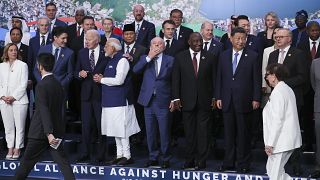
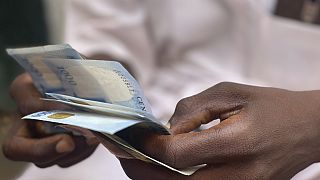
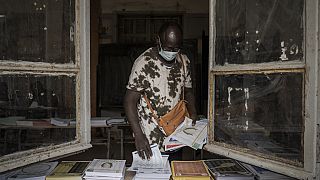
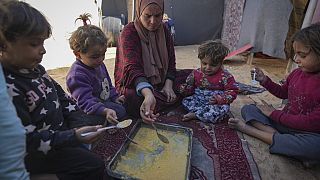
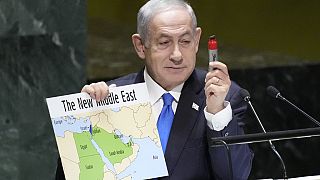
Go to video
Fugitive Zambian MP Emmanuel Jay Banda arrested in Zimbabwe after three-month Manhunt
Go to video
Spain to offer residency and work permits to undocumented migrants
Go to video
Archbishop of Canterbury will end official duties in early January amid sex abuse scandal
Go to video
Congo opposition leaders call for protests against president's plan to change constitution
Go to video
At least 7 members of Nigerian security force missing after insurgents ambush convoy
01:30
Mali: Former al-Qaida-linked police chief sentenced to 10 years for war crimes